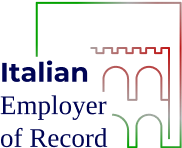31 March 2025
Can you work remotely from Italy for a foreign company?
Can you work remotely from Italy for a foreign company? The answer is yes, but it’s not as simple as opening your laptop and finding a cozy café. For remote workers, Italy offers an incredible lifestyle—picturesque scenery, vibrant culture, and delicious cuisine—but living and working here also comes with a web of legal, tax, and compliance considerations.
For remote workers employed by a foreign company without a local Italian entity, the path to compliance involves understanding visa options, tax residency, and employment regulations. Freelancers face unique challenges too, often losing access to employee benefits like health insurance and pensions.
This guide clarifies how to legally work remotely from Italy as an expat and maintain compliance, whether you’re a digital nomad, self-employed, or a non-italian company employee.
Legal considerations for working remotely from Italy
Do you need a visa to work remotely from Italy?
If you’re considering working remotely from Italy, one of the first questions to ask is whether you need a visa. The answer depends on your nationality, the length of your stay, and whether you plan to be employed or self-employed.
No visa is required for EU/EEA/Swiss citizens, but registering your residency locally is necessary if you stay longer than three months. Non-EU citizens may need to explore long-term stay options or visas tailored for digital nomads.
Italy has been exploring digital nomad visa initiatives, which can provide a structured legal pathway for non-EU remote workers. These visas generally require proof of remote employment, a minimum income threshold, and health insurance coverage. While details are still evolving, digital nomad visas are intended for individuals who work primarily for non-Italian companies, allowing them to reside and work remotely in Italy without violating local employment laws.
However, working for an international company raises unique legal challenges even with a visa. Italian authorities clearly distinguish between working for a local employer and a foreign entity. Without proper employment status or self-employment registration, remote workers risk running afoul of Italian labour laws. Noncompliance penalties can include fines, back taxes, and even deportation. This makes it crucial to understand the legal requirements and ensure your work arrangement is structured correctly from the start.
Tax implications and residency considerations
Living in Italy for more than 183 days in a calendar year typically makes you a tax resident. As a tax resident, your worldwide income—including earnings from a foreign employer—becomes subject to Italian taxation.
Even if you’re employed by a company based in another country, spending significant time in Italy means you must comply with local tax obligations. This includes filing Italian tax returns, reporting foreign income, and potentially paying taxes on that income in Italy.
Italy’s tax system is progressive, with rates ranging from around 23% to 43% depending on income levels. In addition, social security contributions are mandatory for most residents, regardless of whether their employer is based abroad.
Double taxation agreements between Italy and many other countries can help reduce the risk of being taxed twice, but they don’t eliminate the need to file and pay taxes in Italy. It’s vital to consult a tax professional who understands cross-border taxation to ensure compliance.
Certain tax advantages may apply to digital nomads under the digital nomad visa framework. However, these benefits often have strict eligibility criteria and can still require careful planning. Remote workers may pay more than necessary without proper tax residency planning or face compliance issues.
Employment benefits and challenges for freelancers in Italy
Freelancers working remotely from Italy face another hurdle: lack of traditional employment benefits. Self-employed workers (liberi professionisti) generally do not have access to paid leave, employer-provided health insurance, or pension contributions. They are responsible for managing their own social security contributions through INPS (Italy’s social security agency), which can be both complex and costly.
Moreover, freelancers must handle VAT registration, issue invoices compliant with Italian tax regulations, and keep meticulous financial records. For digital nomads who enjoy the flexibility of freelancing but want more stability and benefits, these requirements can be burdensome. Accessing Italy’s healthcare system or building retirement savings through the national pension scheme can also be challenging without a formal employment structure.
Compliance best practices for remote workers in Italy
To avoid compliance pitfalls, remote workers in Italy must adhere to several best practices. First, understanding the type of visa or work permit you need is essential. If you’re not from the EU/EEA/Switzerland, you must ensure that your visa or residency status allows you to work remotely without violating immigration laws.
Next, structuring your contracts correctly is critical. If a foreign company employs you, ensure your employment contract explicitly reflects your remote work arrangement, including your responsibilities, working hours, and salary details. This helps prevent misunderstandings with Italian authorities and ensures that your work is legally recognised.
Tax and social security compliance is another crucial area. Determine if you’re subject to Italian tax residency and follow the appropriate steps to register with local tax authorities. If you’re self-employed, ensure you have the correct VAT registration and contribute to INPS.
Confirm that your employer handles tax withholding and social security contributions correctly if you’re employed. If you are hired by a foreign company that does not have a local presence in Italy, consider working through an Employer of Record to simplify compliance.
How an Italian Employer of Record can help remote workers
Italian Employer of Record is a third-party service provider that legally employs workers on behalf of another company. For remote workers in Italy, an EOR can offer a range of benefits:
- Legal work status and full employment protections: By becoming your legal employer, the EOR ensures that your work in Italy complies with all labour regulations.
- Access to employee benefits: Through the EOR, you gain benefits such as health insurance, pension contributions, and paid leave—benefits that freelancers typically miss out on.
- Tax compliance and employer contributions: The EOR handles all payroll and tax filings, ensuring that income tax, social security, and other contributions are correctly calculated and submitted.
- Simplified administrative processes: You don’t have to worry about self-employment registration, invoicing, or complex tax filings. The EOR manages these on your behalf.
Take Sara, a graphic designer from the UK who moved to Florence. She was freelancing for a US-based marketing agency, but found the paperwork, taxes, and lack of health coverage overwhelming. By signing on with an Italian EOR, she was able to keep working for the same client, access national healthcare and pension contributions, receive maternity benefits when she started a family, and stop worrying about complex filings and misclassification risks
Today, she still enjoys remote work freedom — but with the stability and benefits of a full employee.
Work remotely from anywhere
For digital nomads and remote workers looking to base themselves in Italy while working for a foreign company, the journey involves more than just finding the right villa or co-working space. It requires a thorough understanding of visa requirements, tax obligations, and compliance best practices. Without proper planning, remote workers risk legal and financial complications.
An Employer of Record can be a valuable ally in navigating Italy’s complex labour laws. By providing legal employment status, access to benefits, and seamless tax compliance, an EOR simplifies the path for remote employees to live and work in Italy without administrative headaches.
If you’re considering remote work from Italy, take the time to review your legal and tax obligations. Consult with professionals who specialise in cross-border employment, and explore EOR services to ensure compliance and peace of mind. With the right approach, you can enjoy all that Italy has to offer while working remotely for a foreign company—legally, securely, and efficiently.



